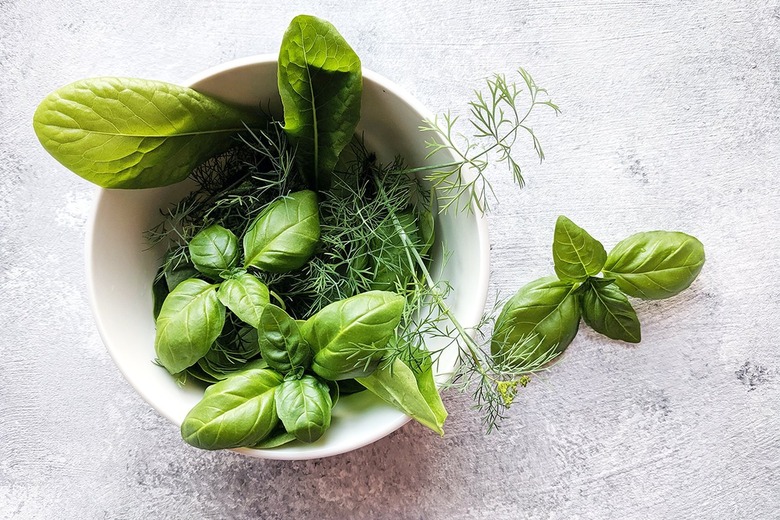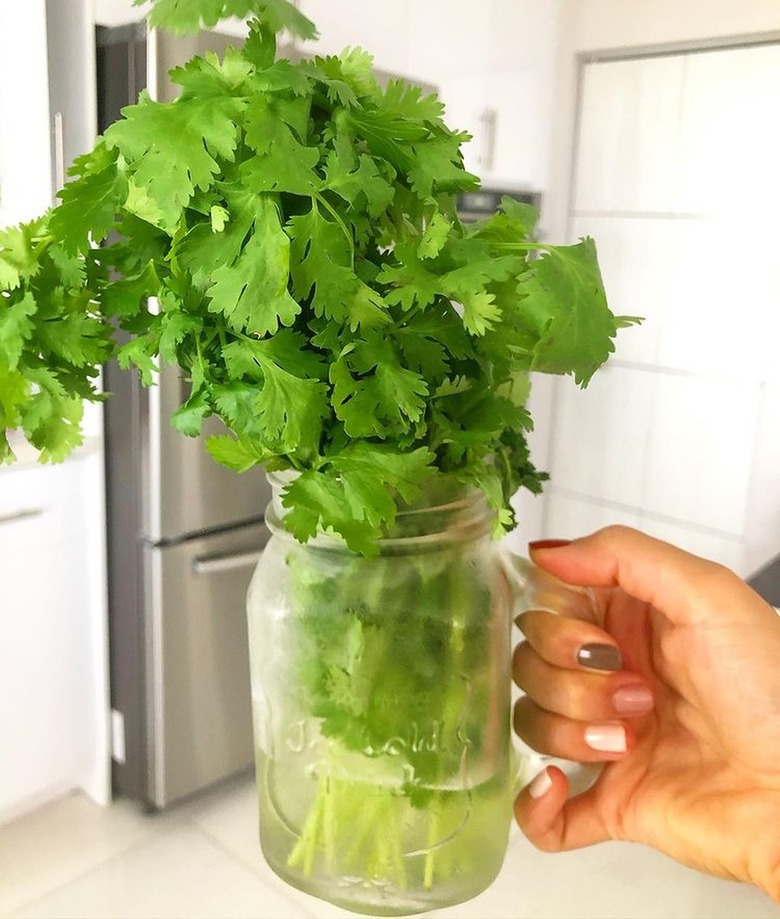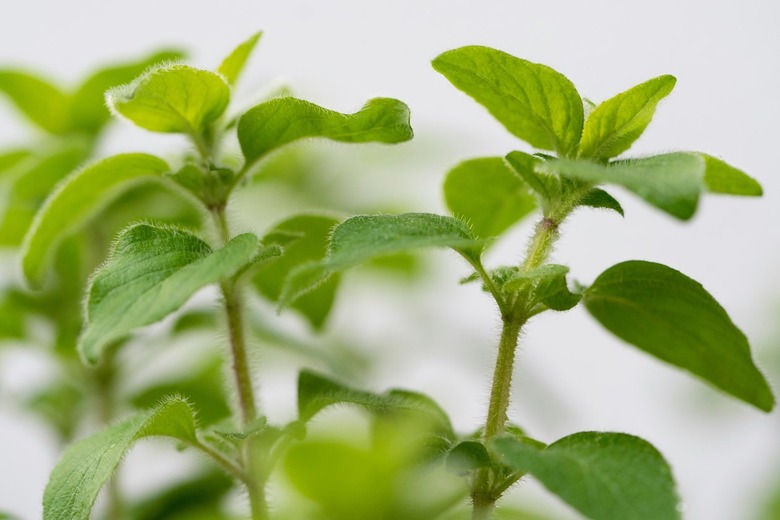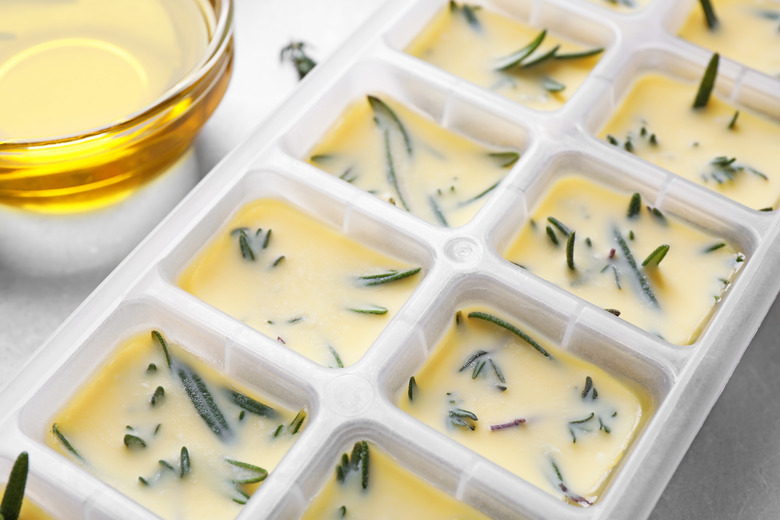How To Store Fresh Herbs So They Don't Become A Gross Mess
From the bright flavor of dill to the earthy notes of sage, you can always count on fresh herbs to elevate a meal. However, without proper storage, herbs — like all fresh foods — can quickly go bad.
Fortunately, the best way to store fresh herbs requires simple methods and supplies. Ahead, learn how to store all of your favorite herbs, according to experts.
How to Store Tender Herbs
How to Store Tender Herbs
First, it's important to understand the difference between tender and hardy herbs. That's because each type is best stored using different techniques.
Tender herbs have soft, delicate leaves and stems. These varieties have a higher moisture content than hardier herbs.
Examples of tender herbs include:
You can store tender herbs in a jar of water in the refrigerator, according to Kimberly Baker, Ph.D., R.D., L.D., director of the food systems and safety program team at Clemson University Extension Service. To do this, start by snipping about 1/2 inch off of the stem ends. This will help the herbs absorb the water, Baker tells Hunker. Next, fill a jar with a few inches of water, add the herbs, and place the jar in the refrigerator. Change the water every one to two days to stave off mold, advises Baker. When stored in this way, tender herbs can last for up to one week.
There's just one exception, though: basil. This particular herb should be kept outside of the refrigerator at room temperature. That's because basil thrives in tropical climates, so placing it in the refrigerator will quickly wilt the leaves, says Traci Weintraub, chef and founder of Gracefully Fed, a meal delivery service based in Los Angeles.
However, you can still store basil in a jar. "Take off any rubber bands, snip the ends, and place them in a jar with water," Weintraub says. Make sure the waterline is below the leaves, and keep it on your countertop like a flower bouquet. Drape a plastic bag over the basil to keep in the humidity and change the water every few days, she says.
How to Store Hardy Herbs
How to Store Hardy Herbs
Hardy herbs include those with tougher stems and leaves. The stems are usually woody and inedible. This includes herbs like:
Hardy herbs can also be stored in the refrigerator. You can use the jar method mentioned above, though it's generally recommended to store them wrapped in a paper towel. "To do this, lay the herbs loosely on a dampened — not soaking wet — paper towel," shares Weintraub. Roll up the herbs, place them in a resealable ziplock bag, and then store them in the refrigerator. However, "if you're looking for an eco-friendly option, feel free to swap the zip-locked bags for a reusable, silicone sandwich bag," adds Weintraub.
Using this method, hardy herbs can last for about one week in the refrigerator, if not slightly longer.
How to Freeze Herbs
How to Freeze Herbs
According to Weintraub, freezing herbs (of all types) is a great option if you plan to use them in future cooked dishes. This could include "adding them to a pasta sauce or soup, or even for something like a pesto," Weintraub tells Hunker.
One popular method is to freeze the herbs in oil. To do this, "simply chop up your fresh herbs, add them to an ice tray, and top them with oil," explains Weintraub. Transfer the tray to the freezer to harden. Once frozen, place the cubes in an air-tight, freezer-safe container.
Other Tips for Storing Herbs
Other Tips for Storing Herbs
Whether you're storing tender or hardy herbs, do not wash them before storing, advises Baker. "Water on the leaves will promote mold growth," she says, which will make your precious herbs spoil faster. That said, "it's important to keep them as dry as possible, except for [the] stems underwater, during storage," notes Baker.
Not sure if your herbs have gone bad? According to Baker, signs of spoilage include visible mold, discoloration, and wilting or drooping leaves.



